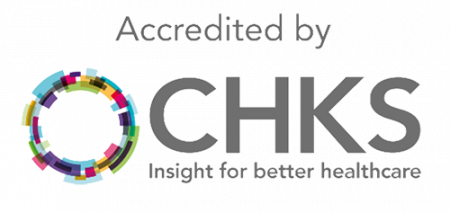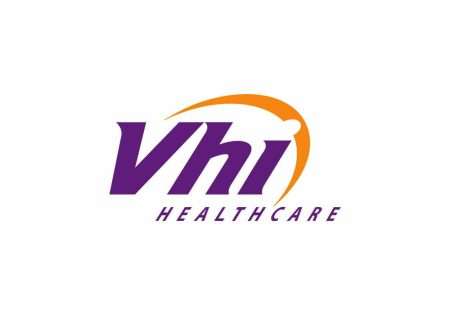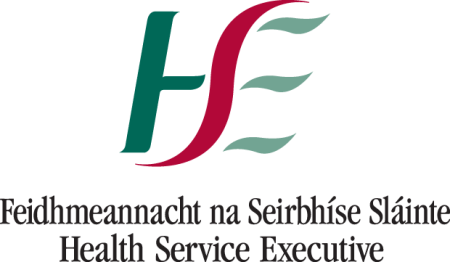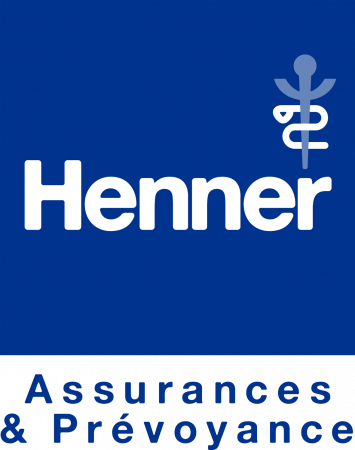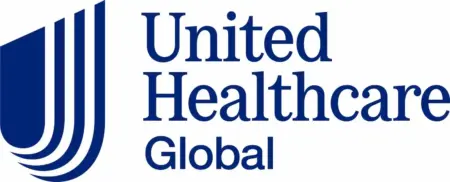
Smarmore Castle Drug & Alcohol Rehab
A Historic Setting for Recovery
Smarmore Castle is a private addiction treatment clinic set in a tranquil 15-acre estate in County Louth. A fine period house steeped in history and charm, it incorporates a medieval tower, dating back to 1320. Today, this peaceful, historic setting has been thoughtfully restored to provide a safe and welcoming environment where people can focus on their recovery with dignity and privacy.
The natural beauty and calm of the surroundings of the Irish countryside play an important role in the healing process. Patients often tell us that being away from the pressures and triggers of everyday life helped them find the space to reflect, grow, and begin to rebuild their lives.
Located just 45 minutes north of Dublin and 1.5 hours south of Belfast, Smarmore Castle offers expert care in a setting that feels truly restorative.
Our Vision
Every person with an addiction who comes through the doors of Smarmore Castle has the chance to start their recovery journey and turn their lives around. We help change the lives of not just our residents, but their loved ones – wives, husbands, parents, children, friends.
At Smarmore Castle, our vision of ‘recovery’ goes beyond helping patients when they are here; we want to help them forge their very best life with the therapeutic tools they need to stay abstinent and live fulfilled lives in recovery. This is as true today as it was in 1983 when our founders, Peter and Dr Margaret McCann founded their first addiction treatment centre in the UK.
Read more about the Smarmore Castle Treatment Model.
Accredited by Inspectors
Ireland-Based, Internationally Trusted
People come to Smarmore Castle from across Ireland and Europe because of our clinical excellence, experienced team, and the supportive, therapeutic environment we offer. We are proud to be a recognised provider off addiction rehab with VHI and other major insurers, and a trusted provider of residential addiction treatment for the HSE.
Our Experienced Team
When patients arrive at Smarmore Castle they receive a warm welcome from our experienced team. Our programme is led by our Medical Director, Dr Orlagh McCambridge, Consultant Psychiatrist, and clinic manager Keith Cassidy. They work alongside a multidisciplinary team of team of doctors, nurses, therapists, and support staff. Together, they bring expertise in treating addiction alongside co-occurring issues such as trauma, depression, anxiety, bereavement, and burnout. Meet our team
Safety, Quality and Clinical Excellence
As a leading addiction and mental health clinic in Ireland, Smarmore Castle is committed to delivering safe, confidential, professional, and effective care. We are independently inspected by CHKS and ISO 9001 certified, and we integrate high standards of clinical governance across every part of our service.
Our team works collaboratively to review and improve our care – from detox and therapy to continuing support after treatment.
Thought Leadership
Our team of experts are regularly called upon by the Irish media to comment on the issue of addiction and recovery in Ireland.
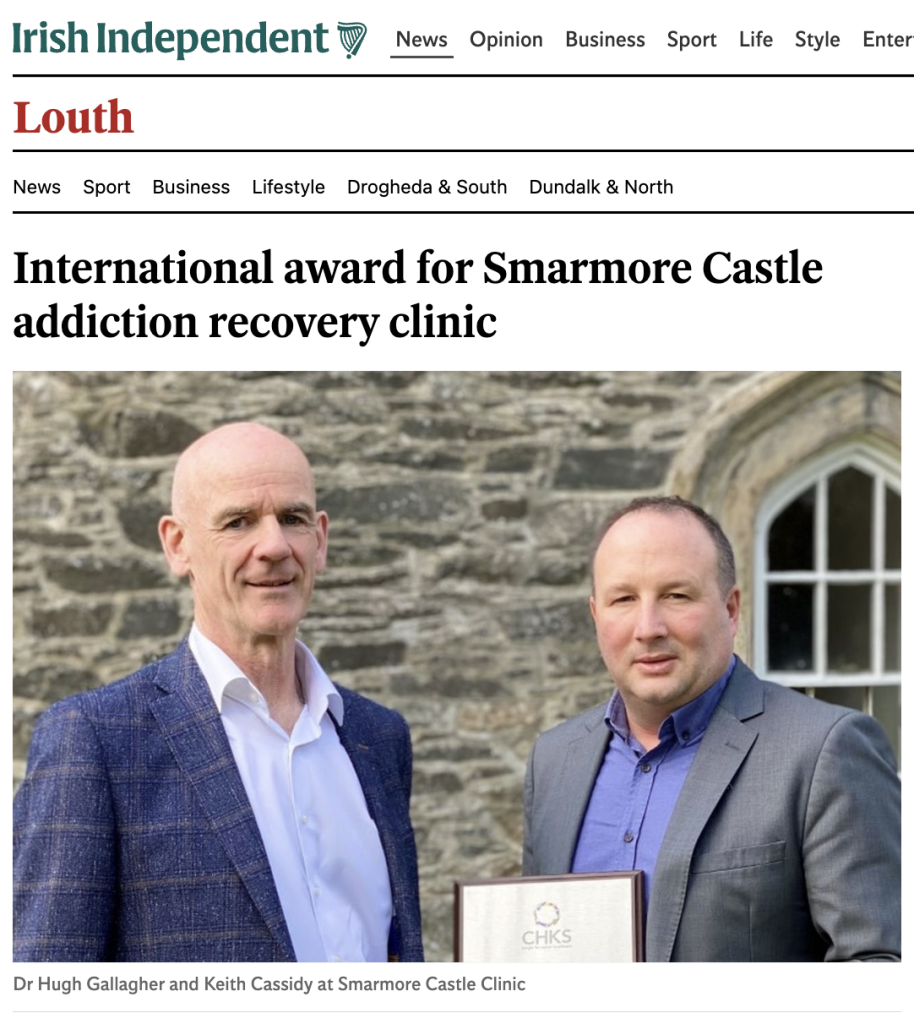
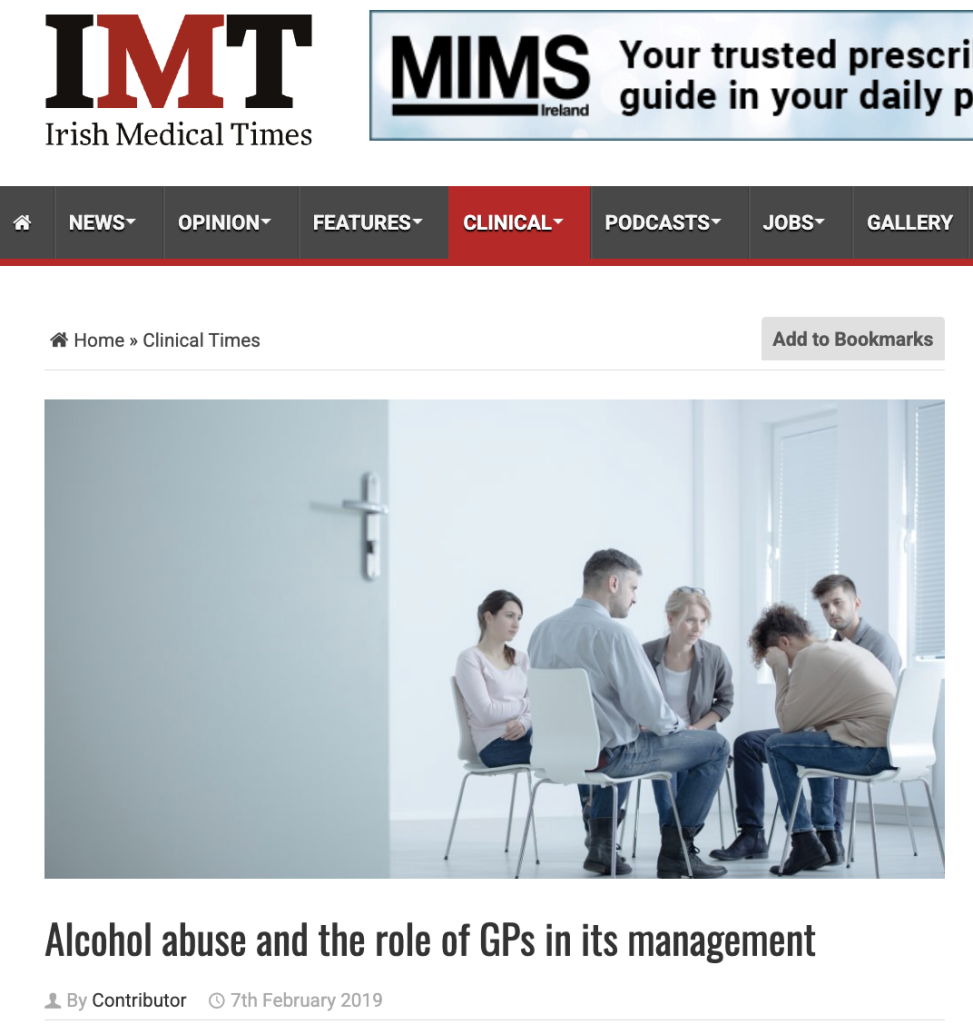
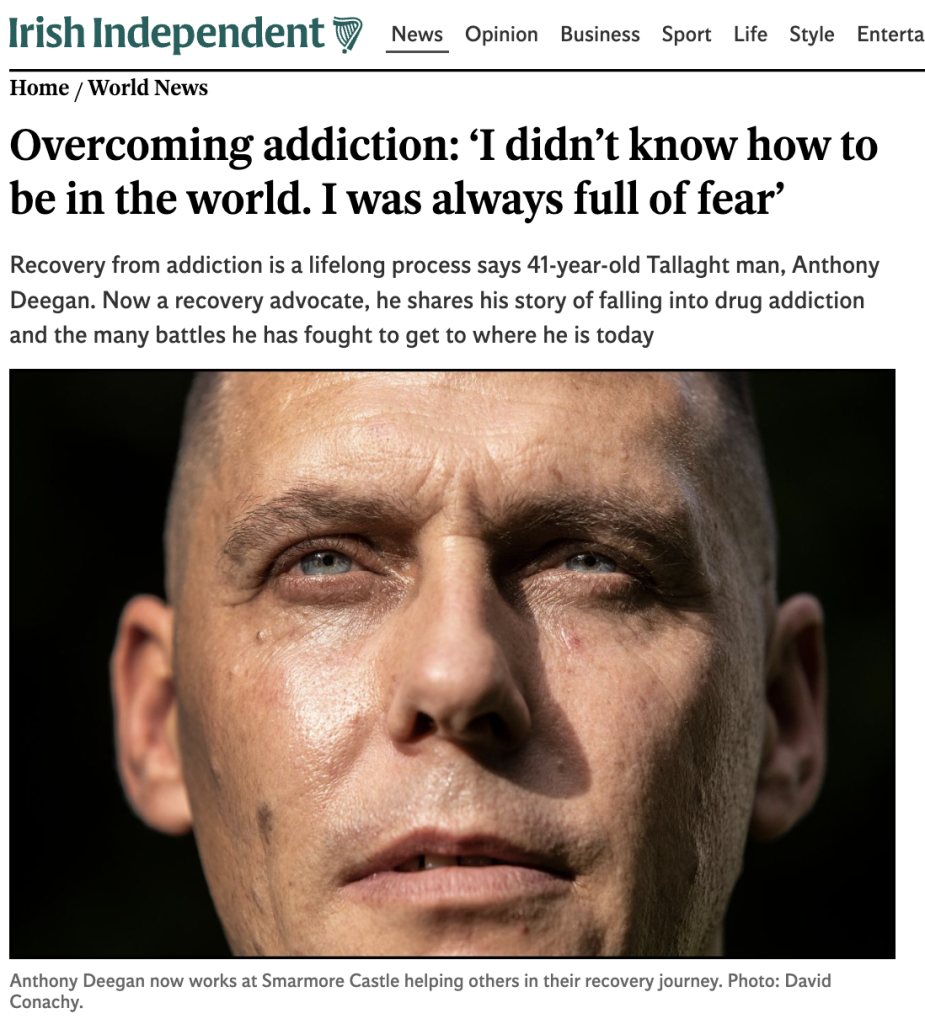
Part of the Castle Health Group
Smarmore Castle is part of Castle Health Group – an international network of clinics specialising in addiction and mental health treatment. Castle Health was founded by the McCann family, pioneers in residential rehab care since 1983, Castle Health brings together decades of experience in helping people recover.
- Castle Craig, Scotland: Scotland’s first rehab, (est. 1988), renowned for its residential addiction treatment model, is set on a 50-acre estate near Edinburgh.
- CATCH Recovery: Providing outpatient therapy and continuing care in Dublin and the UK, including online services.
- Castle Craig Netherlands: Outpatient and referral services across the Netherlands, operating as a recognised mental health provider since 2008.
- Stockholms beroendeklinik: Offering outpatient addiction care in Sweden and Scandinavia.
Together, our group supports hundreds of people each year through high-quality, medically-led and compassionate care with the aim of fostering long-term recovery.

Download our Brochure
Smarmore Castle Location
Find Us
041 986 5080
info@smarmorecastle.ie
Smarmore Castle Clinic, near Ardee, County Louth, Ireland A92 YY22
